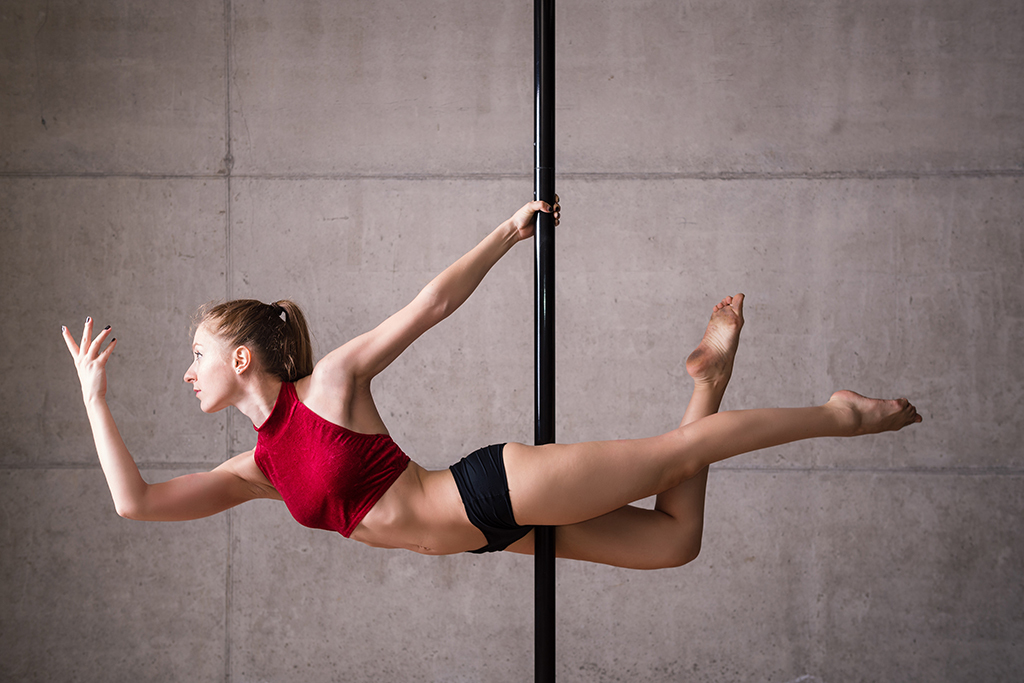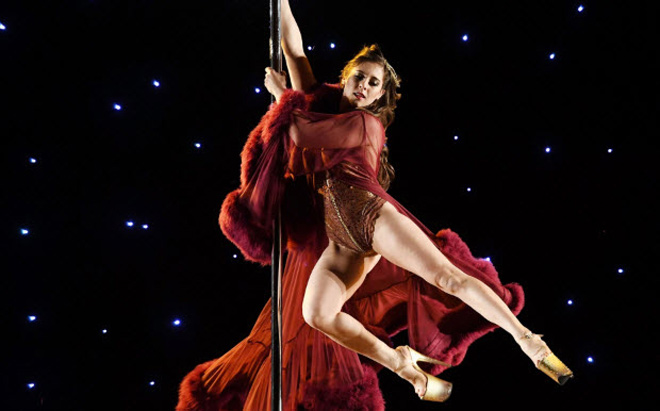Pole dancing is officially recognized as a sport
Pole dancing has recently been officially recognized as a sport. And those in charge are campaigning to include pole dance in the Olympics program as soon as possible.
But gradually, pole dancing has become more widely recognized, like other sports that help the body in attractive shape. Many people have practiced pole dance to exercise their health.

After 11 years of strenuous struggle, an English woman named Katie Coates persuaded the International Sports Federation (GAIFS). They officially recognized pole dance as a professional sport. Katie, 41, is currently the President of the Sports Pole Dance Federation (IPSF).
The pole dance tournaments are initially only at the amateur level. By 2012, an international pole dance tournament was held for the first time, with a large-scale and professional manner.
But in order to convince the authorities to recognize pole dance as a sport, Katie and her colleagues did a lot of work. They have to standardize scoring systems, rules, doping tests and so on.
No new sport has been recognized in the past 30 years. So the effort of Katie and her partner is great. Difficulties still lie ahead as she continues her efforts to incorporate sports pole dance into the Olympics program.

According to Reuters, the IPSF Olympic Sub-Committee has been working hard to hope pole dancing will be recognized as an official sport. Everything is going well when the IPSF signed the confirmation.
That it will comply with the regulations and criteria of the World Doping Prevention Commission. But by signing with sports standards we look forward to becoming an international sport soon,” IPSF statement.
According to Ms. Coates, Chair of IPSF, the attitude of people recognizing the benefits of pole dancing has changed remarkably. The proof is that they support the tournament very enthusiastically.
Samantha Smith, owner of the pole dance club in Cape Town (South Africa), believes that if pole dancing is approved as an official sport. This will attract a lot of male and female audiences. “We’re trying to change people’s perceptions,” Smith said.
